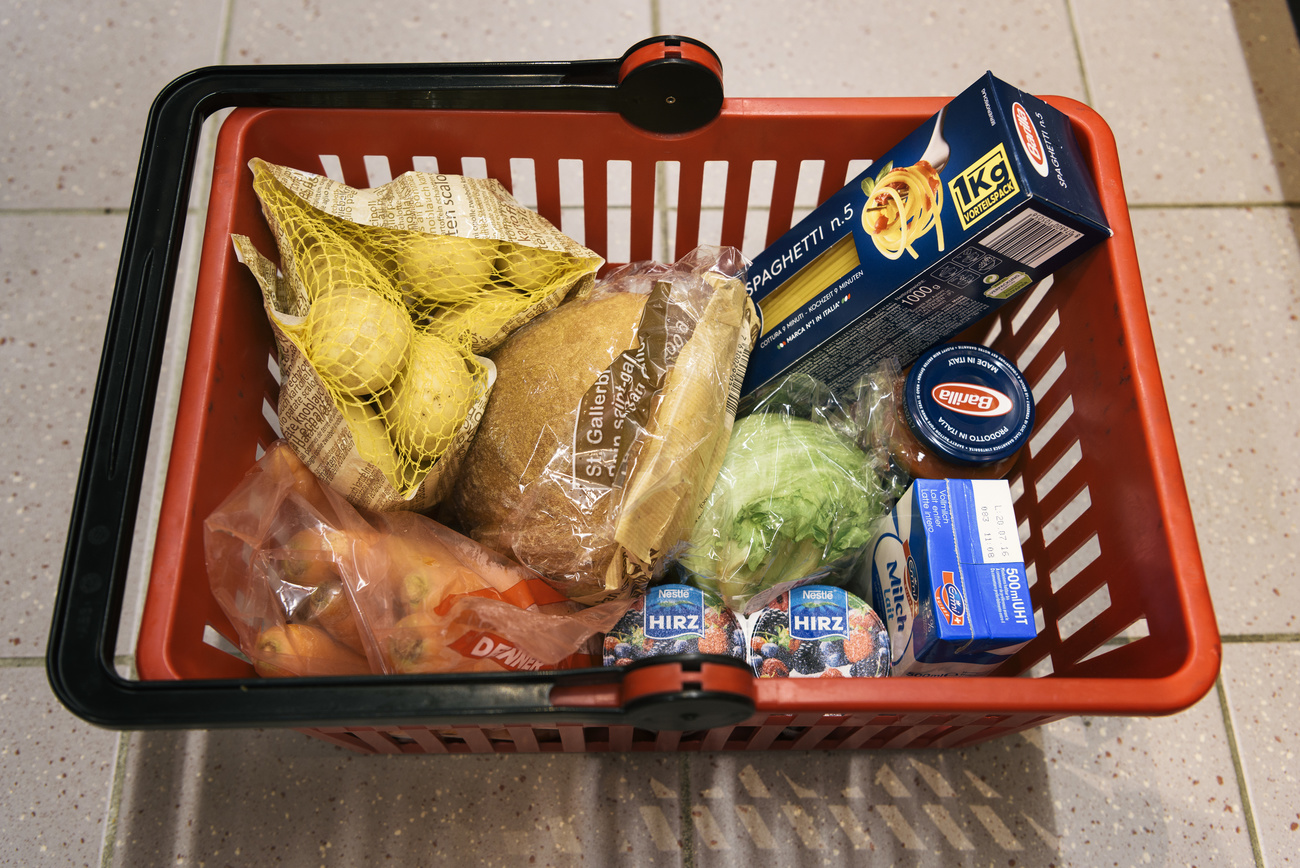
Survey: two-thirds of Swiss feel pressures of rising inflation

Two-thirds of residents in Switzerland, one of the wealthiest countries in the world, say they have been feeling the impact of rising inflation over the past two years, a poll by the Deloitte consultancy reveals. Life has become “very difficult” for over a quarter of those surveyed.
Inflation is exerting a significant impact on consumer behaviour in Switzerland, the report said. People are cutting back on non-essential spending and making savings, the authors of the “Pulse of Switzerland” survey conclude.
+ ‘Myth’ of spiking Swiss rents comes under scrutiny
They found that over half (52%) of those questioned spent less on restaurants or nights out in the past 12 months. And 40% said they had cut back on buying clothing, holidays, travel and leisure activities. More than a third (34%) had cut back on how much they spent on food.
In all, 57% had reduced spending on non-essential items. Fewer people made savings on education (10%), public transport (14%) or telecommunications (16%).
+ Cup of Swiss coffee set to explode in price
Customers are more willing to shop around, the authors say. Special offers and promotions have become more important for 51% of those questioned. Many also seek out cheaper products (44%) or have switched to cheaper suppliers (37%).
But only a small minority of respondents are opting for second-hand goods, making things themselves or borrowing due to higher prices. Deloitte therefore believes that there has not yet been any fundamental changes in consumer behaviour.
+ Read why Switzerland is resistant to food-price inflation
In the survey, 27% of respondents across Switzerland said inflation had made life “very difficult” over the past 12 months.
Western Switzerland seems to be particularly hard hit, with 33% saying inflation made life “very difficult” and 40% “fairly difficult”. Across the country as a whole, almost two-thirds (65%) say inflation is making life difficult, rising to almost three-quarters (73%) in French-speaking Switzerland.
More
Rising rents and health insurance premiums are also a cause for concern. But savings are hard to make in both cases.
The survey shows that public opinion is roughly split on what to do. One half of the population wants long-term, sustainable solutions to rising inflation, while the other wants short-term action.
In Switzerland, prices are currently 6% higher on average than they were at the start of 2021. A total of 1,900 people living in the Alpine country took part in the Deloitte survey in November 2023.
This news story has been written and carefully fact-checked by an external editorial team. At SWI swissinfo.ch we select the most relevant news for an international audience and use automatic translation tools such as DeepL to translate it into English. Providing you with automatically translated news gives us the time to write more in-depth articles. You can find them here.
If you want to know more about how we work, have a look here, and if you have feedback on this news story please write to english@swissinfo.ch.

In compliance with the JTI standards
More: SWI swissinfo.ch certified by the Journalism Trust Initiative
















![The four-metre-long painting "Sonntag der Bergbauern" [Sunday of the Mountain Farmers, 1923-24/26] had to be removed by a crane from the German Chancellery in Berlin for the exhibition in Bern.](https://www.swissinfo.ch/content/wp-content/uploads/sites/13/2025/12/01_Pressebild_KirchnerxKirchner.jpg?ver=917ecbf2)















You can find an overview of ongoing debates with our journalists here . Please join us!
If you want to start a conversation about a topic raised in this article or want to report factual errors, email us at english@swissinfo.ch.